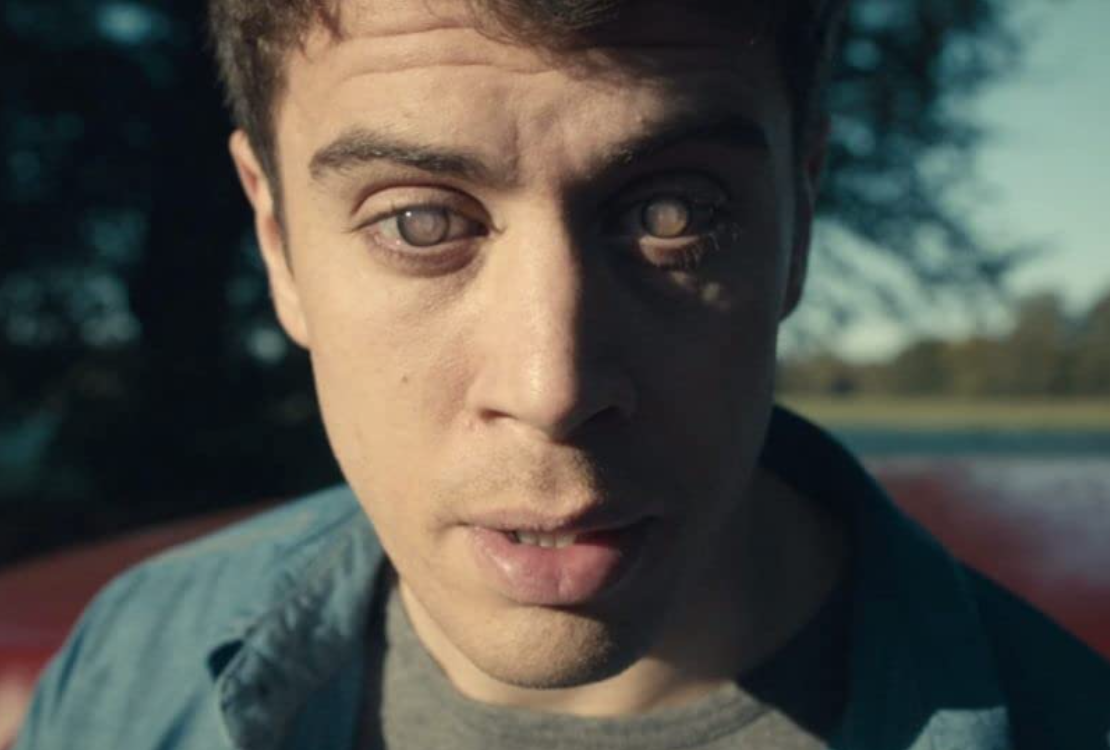Fans and critics alike regard Charlie Booker’s Black Mirror as one of the cleverest commentaries on the downsides of technology. It has achieved major success for its disturbing plotlines. But for the most part, it is rooted in the unsettling realities of the present-day world. Not only has Black Mirror managed to portray scary real life scenarios, but it seems to be predicting the future as well. A recent development announced by Amazon had fans speculating once again.
Here are five episodes from the show that became a reality:
1. Be Right Back – Amazon’s new plans for Alexa

In this episode, Martha uses an AI to reconnect with her deceased husband. It begins with a messaging service, and soon evolves into an identical android of him. With time, however, her discomfort grows. She must eventually confront the reality that an android cannot replicate her husband, let alone replace him.
Amazon is now working on a system that will make it possible for its popular virtual assistant, Alexa, to mimic pretty much anyone’s voice – including dead people. According to Senior Vice President Rohit Prasad, who Reuters quoted in their article, the aim is to “make memories last” after “so many of us have lost someone we love” during the COVID pandemic. Although he clarified that we must not confuse this technology with the all-capable Artificial General Intelligence (AGI), it is still worryingly reminiscent of the Black Mirror episode.
2. The Entire History of You – Samsung’s Smart Contact Lenses

The plot follows Liam and his wife Ffion, who get caught in a web of deceit and jealousy when he grows suspicious that she has cheated on him. The creepy device that holds it all together is a ‘grain’, which once implanted into a person, can help them re-watch memories that have been recorded through their eyes and ears. Maybe some things, no matter how true they are, are better left in the territory of the unknown.
In 2016, news broke out that Samsung was patenting a ‘smart’ contact lens that could project images into the user’s eyes, discreetly take photos, and connect wirelessly to smartphones. The Guardian reported that according to the patent, eye movements and blinking could control the device. While we know little about when and how we may actually get our hands on technology as advanced as this, it is eerie to imagine a world where someone may be able to record their interaction with you, even without your consent, using just their eyes.
3. Fifteen Million Merits – Un-skippable Advertisements

In Fifteen Million Merits, Bing’s bedroom walls are giant screens that wake him up in the morning, stream content, and allow him to play video games. They also feature advertisements, and skipping these will incur a deduction of ‘merits’, which citizens can use currency. Bing tries to skip an advertisement for pornography featuring his close friend, but because he doesn’t have the money, the screens emit a high-pitched ringing and force him to look back at the screen.
Much like him, we may reach a point where we lose the luxury of grabbing a snack during YouTube adverts. MoviePass was once a film streaming service. But it is now returning as an app that can track user’s eye movements and force them to watch advertisements in exchange for streaming films. If the user looks away, the app will detect this movement and pause the advert automatically. Naturally, this kind of technology raises extreme concerns about privacy
4. Hated in the Nation – Robot Bees

A series of deaths are linked to the hashtag #DeathTo. Everyday, the person mentioned most times with this hashtag is killed. The crimes are committed using tiny, autonomous drone insects (ADI) capable of using facial recognition technology.
Researchers at the Wyss Institute at Harvard, are developing ‘RoboBees’ that are half the size of a paper clip. The intentions behind this technology are all pure, such as search-and-rescue operations, environmental monitoring, and crop pollination. But we are yet to find out what the future of such a technology holds. Mass surveillance? Assassinations? Only time will tell.
5. Nosedive – China’s social credit system

Nosedive follows Lacie, who lives in a society where individuals receive ratings based on their interactions. These numbers have created a new class divide, wherein those with higher ratings can access services that lower-ranked individuals cannot. Many fans have interpreted this as a metaphor for how gaining approval on social media controls our lives. But, we may not be so far away from translating it into our real, off-screen lives.
In 2018, many news platforms reported that China was all set to introduce a ‘social credit’ system. A network of 200 million surveillance cameras would assess individuals and assign points on the basis of their behaviour. They will use technologies like facial recognition, body scanning, and geo-tracking. Higher-ranked citizens will be able to avail benefits. These include priority job applications, discounts on loans, and VIP treatment at airports, according to the New York Post. Since then, platforms like The Spectator published articles on why the system isn’t as dystopian as many were making it out to be. But the idea of such kind of constant surveillance still leaves us with much to think about.





